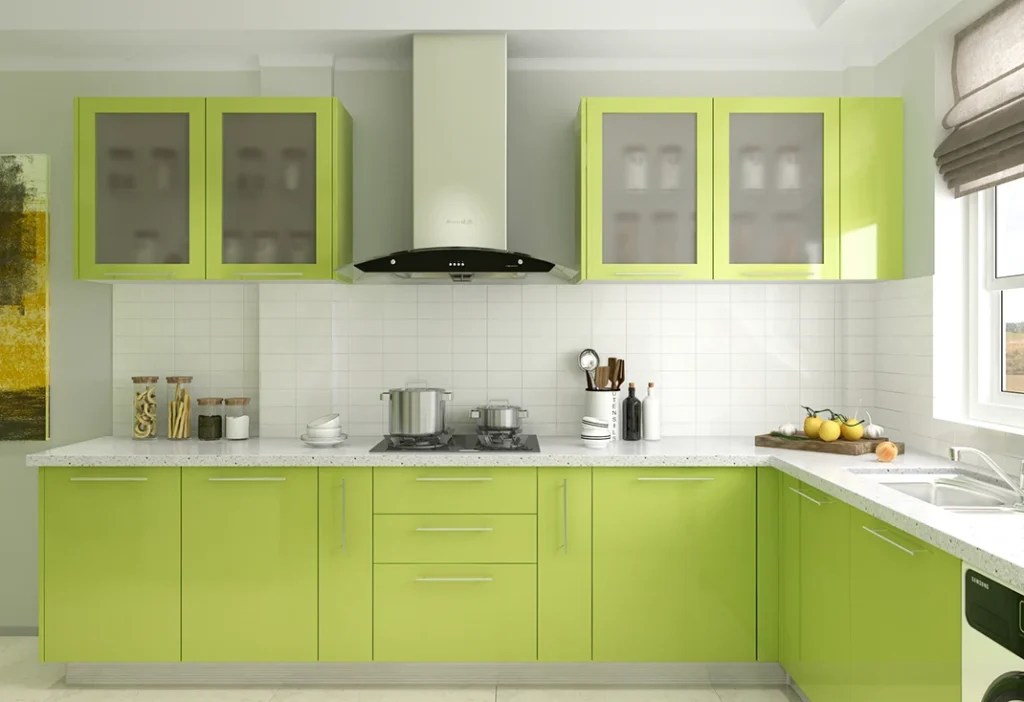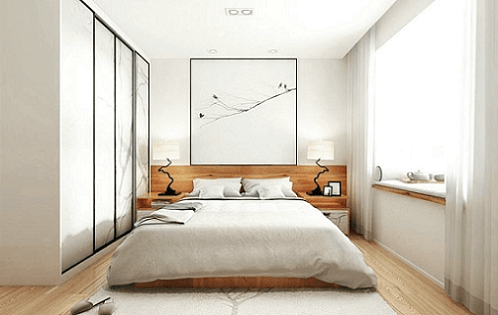Home is where we feel safest, but unfortunately, it’s also where we’re most vulnerable to security threats. From break-ins to natural disasters, protecting our homes and loved ones is paramount.
That’s where home security systems come in!
Imagine leaving for work or going on vacation, knowing your home is protected round the clock. A reliable home security system provides peace of mind, deterring potential intruders and alerting you to any suspicious activity. It’s like having a vigilant guardian watching over your property, even when you’re not there.
Whether you live in a bustling city or a quiet suburb, no neighborhood is immune to security risks. Burglaries, vandalism, and even environmental hazards like fires or floods can threaten your home’s safety. Understanding these potential dangers is the first step toward securing your property effectively.
Modern home security systems offer a comprehensive approach to safeguarding your home. From basic burglar alarms to sophisticated smart home solutions, there’s a wide range of options to suit every budget and need. These systems utilize advanced technology such as motion sensors, surveillance cameras, and smart locks to provide robust protection and remote monitoring capabilities.
In the upcoming sections, we’ll delve deeper into the various types of home security systems available, factors to consider when choosing the right system for your home, and practical tips for installation and maintenance.
By the end, you’ll have the knowledge and confidence to fortify your home against any potential threats.
Types of Home Security Systems
Choosing the right home security system can feel overwhelming with so many options available.
Let’s break down the different types to help you find the perfect fit for your home and lifestyle.
Burglar Alarms
Burglar alarms are like the frontline soldiers in your home security arsenal. They sound the alarm when an intruder attempts to break into your home, alerting you and your neighbors to the threat.
- How They Work: Burglar alarms typically consist of sensors placed on doors and windows, as well as motion detectors inside the house. When a sensor is triggered, it sends a signal to the control panel, which sets off the alarm.
- Benefits and Drawbacks: Burglar alarms are a cost-effective way to enhance your home security. They’re easy to install and offer a basic level of protection. However, they may not be as effective against more sophisticated intruders, and false alarms can sometimes be triggered by pets or other harmless movements.
Surveillance Cameras
Surveillance cameras provide an extra set of eyes on your home, allowing you to monitor activity both inside and outside, even when you’re away.
- Different Types Available: There are various types of surveillance cameras, including wired and wireless models, indoor and outdoor cameras, and those with features like night vision and motion detection.
- Installation Tips: When installing surveillance cameras, consider strategic placement to maximize coverage of vulnerable areas. Aim outdoor cameras at entry points like doors and windows, and position indoor cameras in high-traffic areas.
Smart Home Security Systems
Smart home security systems take home protection to the next level by integrating with your smartphone and other smart devices.
- Features and Advantages: With a smart home security system, you can remotely arm and disarm your alarm, receive real-time alerts on your phone, and even view live camera feeds from anywhere in the world.
- Integration with Other Smart Devices: One of the biggest advantages of smart home security systems is their ability to integrate with other smart devices in your home, such as smart locks, lights, and thermostats. This allows for seamless automation and enhanced convenience.
By understanding the different types of home security systems and their respective features, you can make an informed decision that meets your needs and provides the protection your home deserves.
In the next section, we’ll explore key factors to consider when choosing a home security system.
Factors to Consider When Choosing a Home Security System
Selecting the right home security system is crucial to ensure optimal protection for your home and loved ones.
Here are some key factors to keep in mind when making your decision:
Budget Considerations
Before diving into the world of home security systems, it’s essential to establish a budget that aligns with your financial situation. Determine how much you’re willing to invest in both the initial setup and ongoing monitoring fees, if applicable.
Remember that while some systems may have a higher upfront cost, they could potentially save you money in the long run by deterring theft and reducing insurance premiums.
Home Size and Layout
The size and layout of your home will play a significant role in determining the type and number of security devices you need.
Larger homes may require more extensive coverage with multiple cameras and sensors, while smaller homes or apartments may be adequately protected with a simpler system.
Consider the layout of your property, including any potential blind spots or vulnerable entry points that may require extra attention.
Level of Monitoring Desired
Another crucial factor to consider is the level of monitoring you desire for your home security system.
Some systems offer self-monitoring options, where you receive alerts directly to your smartphone in the event of an intrusion or other security breach. Others may include professional monitoring services, where trained professionals monitor your system 24/7 and dispatch emergency services as needed.
Evaluate your preferences and lifestyle to determine which monitoring option best suits your needs.
DIY vs. Professional Installation Options
Finally, consider whether you prefer a do-it-yourself (DIY) installation or would rather enlist the help of professional installers.
DIY systems are often more affordable and can be easily installed by homeowners with basic technical skills. On the other hand, professional installation ensures that your system is set up correctly and may include additional features or customization options.
Take into account your comfort level with technology and willingness to invest time and effort into installation when making your decision.
By carefully considering these factors, you can choose a home security system that provides the right level of protection for your home, fits within your budget, and aligns with your lifestyle preferences.
Top Home Security Brands and Products
When it comes to home security, choosing a reputable brand can make all the difference in the effectiveness and reliability of your system.
Here’s a closer look at some of the top home security brands and their standout products:
- Ring: Known for its user-friendly products and affordable pricing, Ring offers a range of security cameras, doorbell cameras, and alarm systems. Their Ring Alarm Security Kit is a popular choice for DIY home security, featuring easy installation and customizable monitoring options.
- ADT: As one of the oldest and most established names in home security, ADT offers comprehensive security solutions with professional monitoring services. Their ADT Command Panel integrates with smart home devices for enhanced automation and control.
- SimpliSafe: SimpliSafe is praised for its straightforward setup and contract-free monitoring plans. Their wireless security systems are highly customizable, allowing users to choose the components that best suit their needs and budget.
- Ring Video Doorbell: This innovative doorbell camera allows you to see, hear, and speak to visitors from your smartphone, even when you’re not home. With features like motion detection and night vision, it provides peace of mind whether you’re expecting a package delivery or keeping an eye on your property.
- ADT Pulse: ADT’s Pulse system offers advanced features like remote arming and disarming, live video streaming, and smart home integration. It’s a comprehensive solution for homeowners looking for professional-grade security and automation capabilities.
- SimpliSafe Home Security System: The SimpliSafe Home Security System is a customizable DIY solution that can be easily tailored to fit any home. With components like entry sensors, motion detectors, and HD cameras, it provides reliable protection against intruders and other security threats.
Before making a final decision, be sure to research customer reviews and ratings for the products and brands you’re considering. Websites like Amazon, Best Buy, and Consumer Reports offer valuable insights from real users that can help you gauge the performance and reliability of each system.
By exploring the top home security brands and products on the market, you can narrow down your options and choose the system that best meets your needs and preferences. Whether you’re looking for a simple DIY solution or a comprehensive professional-grade system, there’s a home security solution out there to help protect what matters most.
Home Security Tips and Best Practices
Securing your home goes beyond just installing a security system. Here are some practical tips and best practices to enhance the safety of your home:
Securing Entry Points
- Install Deadbolt Locks: Upgrade your door locks with sturdy deadbolt locks to make it harder for intruders to force their way into your home.
- Reinforce Windows: Consider installing window locks or security bars to prevent windows from being easily opened from the outside.
- Light Up Your Exterior: Illuminate entry points and dark areas around your home with motion-activated lights to deter potential intruders.
Creating a Security Routine
- Set Alarms: Get into the habit of arming your security system every time you leave the house, even if it’s just for a short errand.
- Secure Garages and Sheds: Don’t overlook securing other entry points to your home, such as garage doors and sheds, which can be targets for intruders.
- Practice Home Safety: In addition to deterring burglars, ensure your home is safe from other hazards by checking smoke detectors, maintaining fire extinguishers, and securing heavy furniture and appliances.
Utilizing Smart Home Automation for Security
- Smart Locks: Upgrade to smart locks that allow you to lock and unlock your doors remotely using your smartphone. You can also grant access to trusted individuals, such as family members or delivery personnel, without the need for physical keys.
- Smart Cameras: Invest in smart security cameras with features like live streaming and motion detection, which allow you to monitor your home in real-time and receive alerts for suspicious activity.
- Smart Sensors: Install smart sensors on doors and windows to receive instant notifications on your phone whenever they’re opened or closed, providing an extra layer of security and peace of mind.
By implementing these home security tips and best practices, you can create a safer environment for you and your family while maximizing the effectiveness of your home security system. Remember, vigilance and proactive measures are key to keeping your home secure against potential threats.
Home Security System Installation Guide
Installing a home security system may seem daunting, but with the right guidance, you can set up a reliable system to protect your home. Here’s a step-by-step installation guide to help you get started:
DIY Installation Steps
- Plan Your System: Start by mapping out the areas of your home you want to protect and the type of security devices you’ll need, such as cameras, sensors, and alarms.
- Gather Your Tools: Make sure you have all the necessary tools on hand, including a screwdriver, drill, level, and ladder.
- Install Sensors and Cameras: Follow the manufacturer’s instructions to mount sensors on doors and windows and position cameras in strategic locations, such as entry points and high-traffic areas.
- Connect Control Panel: Install the control panel in a central location and connect it to power and Wi-Fi or a landline, depending on the system’s requirements.
- Test Your System: Once everything is installed, test your system to ensure all devices are functioning correctly and communicating with the control panel.
Hiring Professional Installation Services
- Research Providers: If DIY installation isn’t your preference, research reputable home security companies in your area and compare their services and pricing.
- Schedule Installation: Contact your chosen provider to schedule an installation appointment at a time that’s convenient for you.
- Prepare Your Home: Clear any obstacles and make sure the installer has access to all areas where security devices will be installed.
- Review System Features: Once installation is complete, take the time to familiarize yourself with your new security system’s features and capabilities.
- Ask Questions: Don’t hesitate to ask your installer any questions or voice any concerns you may have about your system or its operation.
Troubleshooting Common Installation Issues
- Check Power Sources: Ensure all devices are properly connected to power sources and that batteries, if applicable, are fully charged or replaced.
- Verify Connectivity: Confirm that all devices are properly connected to your home Wi-Fi network or other communication channels.
- Review Installation Guides: Refer back to the manufacturer’s installation guides for troubleshooting tips specific to your system.
- Contact Support: If you encounter persistent issues, reach out to the manufacturer’s customer support or your installation provider for assistance.
By following these installation guidelines, you can set up your home security system with confidence, whether you choose to tackle the installation yourself or enlist the help of professional installers.
Home Security System Maintenance
Once your home security system is installed and operational, it’s important to keep it well-maintained to ensure optimal performance and reliability. Here are some essential maintenance tasks to keep your system in top shape:
- Test Your System: Periodically test your security system to ensure all components are working correctly. This includes testing alarms, sensors, cameras, and the control panel.
- Check Batteries: If your security system includes battery-powered devices, such as sensors or cameras, check the batteries regularly and replace them as needed to prevent system downtime.
- Inspect Equipment: Routinely inspect all security equipment for signs of damage or wear and tear. Replace any damaged or malfunctioning devices promptly to maintain the integrity of your system.
- Stay Up to Date: Keep abreast of advancements in home security technology and consider upgrading your system periodically to take advantage of new features and capabilities.
- Expand Coverage: As your security needs evolve or your home layout changes, consider expanding your system’s coverage by adding additional sensors, cameras, or other devices as necessary.
Securing your home is essential for peace of mind and the safety of your loved ones. With a variety of home security systems available, from basic alarms to smart home solutions, finding the right fit is easier than ever.
By understanding the importance of home security, choosing the right system, and following best practices for installation and maintenance, you can create a safe environment for your home. Whether you opt for a DIY setup or professional installation, investing in a reliable security system is invaluable for protecting your property.
Remember to stay proactive with regular maintenance and upgrades to ensure your system remains effective over time. With the right security measures in place, you can enjoy greater peace of mind knowing your home is well-protected against potential threats.
Frequently Asked Questions About Home Security Systems
Navigating the world of home security systems can raise many questions, especially for those new to the concept. Here are answers to some of the most frequently asked questions to help you make informed decisions about protecting your home:
How Effective Are Home Security Systems?
Home security systems are highly effective in deterring burglars and providing peace of mind to homeowners. Studies have shown that homes with visible security systems are less likely to be targeted by intruders. Additionally, modern security systems offer features like real-time monitoring and remote access, allowing homeowners to respond quickly to potential threats.
Do Home Security Systems Deter Burglars?
Yes, home security systems are an effective deterrent against burglars. The presence of visible security cameras, alarms, and other monitoring devices acts as a powerful deterrent, dissuading would-be intruders from targeting your home. Additionally, the ability to monitor and control your security system remotely provides added protection and peace of mind.
Can I Install a Home Security System Myself?
Yes, many home security systems are designed for easy DIY installation. These systems typically come with step-by-step instructions and can be set up in a matter of hours using basic tools. However, if you’re not comfortable with DIY installation or prefer professional assistance, many security companies offer professional installation services for an additional fee.
Are Home Security Systems Worth the Investment?
Absolutely. While the initial cost of a home security system may seem daunting, the investment is well worth it for the peace of mind and protection it provides. In addition to deterring burglars and protecting your property, home security systems can also help lower insurance premiums and increase the resale value of your home.
How Can I Choose the Right Home Security System for My Needs?
When choosing a home security system, consider factors such as your budget, home size and layout, desired level of monitoring, and personal preferences. Research different types of systems, compare features and pricing, and read customer reviews to find the best fit for your needs and lifestyle.







